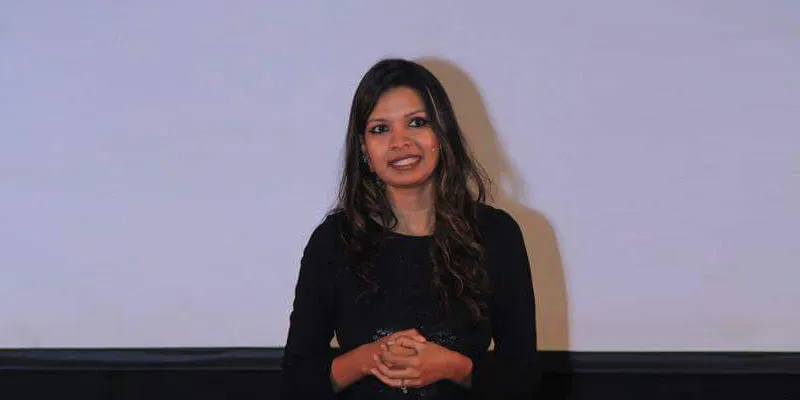Sexism, gender bias, harassment in startups: Sharmin Ali’s book tells it all
Sharmin Ali is crowdfunding her latest book about her challenges as an entrepreneur — especially as a woman — in the startup ecosystem.
This happened in Bengaluru. I had gone to sign the term sheet and close the deal. When I was showing the final deck, he suddenly interrupted me and an unexpected proposition came my way where he wanted to hook up with me before signing the final deal. He said he would like to take me to Goa over the weekend and book us a suite. Once we returned, he would sign the deal over a bottle of champagne.

I gently refused, to which the most surprising reply was that he thought I would be willing for it as my jovial, gregarious, and outgoing nature made him think I would be easy. My final reply was that I was not interested because I wasn't attracted to him and that it had nothing to do with my outgoing nature. When I got up to leave, he said that he was just a phone call away. I just smiled and left!
This incident is among the many issues the 28-year-old entrepreneur Sharmin Ali raises in her book titled How I Was Forced to Become a Staunch RACIST. Slated for an April-May release, the book draws from Sharmin’s own challenges as an entrepreneur.
Sharmin, who quit her corporate career to set off on the entrepreneurial path, wanted to share every aspect of her journey. She says, “I had written about 50 percent of the book when I realised it would be incomplete without a number of incidents with investors because this is every woman entrepreneur’s story.”
The funding couch in the startup ecosystem?
The startup ecosystem, like any other sector, reeks of sexism and gender bias. The way Sharmin was asked out for a weekend in Goa and the subtle innuendos and propositions so many women face make it seem as though we now have our own ‘funding couch’ on the lines of the entertainment industry’s casting couch.
Another incident Sharmin’s book recounts is when she and her co-founder had gone to meet a VC at Mumbai’s Hiranandani Gardens. After listening to her business plan, the only question he could come up with was regarding when she was getting married! Sharmin says, “I didn't quite understand what my marriage had to do with an investment. He then proposed that I step down as CEO and let my co-founder take over that position as he's a man. My co-founder and I have been friends for a long time, and he immediately retorted, ‘Sir, if you're looking for a man to be the CEO, then I must tell you that SHE'S THE MAN!’”
Unfortunately, this is not Sharmin’s story alone. Ask her if she knows of other women who have found themselves at the receiving end of inappropriate attention and she replies,
“I have heard plenty of such stories, but not with the same VC. The mentally strong women continued with their struggle and three of them I know of got back to their corporate lives.”
Sharmin’s team and co-founder have been very supportive of her decision to walk out on the VC and stand up for herself.
“There have been a few bad experiences, but that does not define the entire community. I have a number of mentors, advisors, and friends from the Indian and foreign VC industry and they exemplify real leadership and true potential to mentor startup entrepreneurs and I respect that.”

Overcoming challenges
Sharmin completed her engineering degree in 2010 and began her career with a consulting firm in Bengaluru till her passion for arts and literature pulled her like a magnet. In 2013 she started her first venture, a theatre production house called Art-Right-Is which encourages new talent and provides a platform for people to speak up and see the world from a character’s perspective. Her second startup, founded last year, she says, “is an online marketplace for stories, which we are now revamping and relaunching as a technology startup in May, which is why the name is still under wraps.”
Being on stage and running a theatre production house is a reflection of the challenges Sharmin has overcome as a child. “As a child, I had a huge stammering problem, something that taught me patience, perseverance, and the zeal to continuously keep driving myself to be better than yesterday as my only competition was always with myself. I almost got killed twice as a child, once during the Gujarat earthquakes and second, during the heinous riots. These incidents taught me to be even more humble, be a good human being, and realise one's responsibilities to fellow beings.”
An entrepreneur’s life
It is a truth universally acknowledged that an entrepreneur's life is a roller coaster ride, with sleepless nights and tense moments balancing out the thrill of solving a problem and being your own boss.
For Sharmin, the biggest challenge has been cash flow management. “Having quit my lavish seven-figure consulting job, it has been difficult to manage paying salaries as there has been an outflow of money most of the time. Moreover, planning and delegating tasks and ensuring they happen on time makes a CEO more of a Chief Everything Officer than a Chief Executive Officer. As a founder, you need to ensure that the team does not fall apart due to meagre supplies. Your financial situation might be precarious but you need to keep driving your team, which I believe needs great endurance, self-belief and willpower. That is definitely the greatest challenge for any startup founder.”
Not the first
How I Was Forced to Become a Staunch RACIST is not Sharmin’s first book. Her debut, You Own Yourself (YOU), is about how she overcame her inhibitions by travelling across the country and shifting careers.
Since her first book was printed and not digitised, Sharmin decided to follow the same route this time. However, when she received a negative response from the publishers because of the topic and the content of the book, she decided to crowdfund it.
The reference to racism in her title doesn't have to do with colour but rather encapsulates the discrimination that is rampant within the ecosystem, whether based on gender or other parameters.
The book also talks about the six pillars of an entrepreneur's life. Sharmin piques our curiosity without giving away much but shares that these six pillars draw from varied concepts such as sexism, parenting, neuromarketing, failure, and social media, among others.
According to her, the target audience is people in the age group of 20–45 years as the majority of startup entrepreneurs and VCs fall in this bracket.
The right attitude
As is the case every time a woman decides to speak up, the release of the book is likely to bring her criticism from the trolls and the boys’ club. Is Sharmin really ready to face the music?
“The ones who criticise because they pretty much have nothing else to do, I just tend to ignore. In a country of 1.3 billion people, not everyone can make sense. It's alright; I will give them the benefit of doubt!”
As we close our conversation, there is just one message she wants to share, something that she lives by —"Your success is a function of your attitude and not your aptitude, so get the right attitude to drive yourself to success."
Sharmin has had her say, and the reactions her words are likely to elicit should be worth waiting for.








